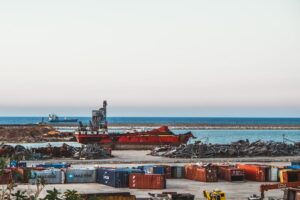EU okays Italy’s amended maritime transport support scheme
The European Commission has approved the prolongation until the end of 2023 of various Italian support measures for maritime transport under Italy’s International Registry scheme.

Specifically, the scheme encourages shipping companies to register their ships in Europe and so ensure higher social, environmental and safety standards.
Italy has also committed to a number of changes to its scheme to avoid undue competition distortion as well as to prevent any discrimination between shipping companies and registries of different European Economic Area (EEA) States.
Under the abovementioned scheme, shipping companies are granted a corporate tax reduction and other benefits. Following the changes to which Italy has committed, the special corporate tax reduction for shipping companies will be applied to shipping companies’:
- core revenues from shipping activities, such as cargo and passenger transport;
- certain ancillary revenues that are closely connected to shipping activities (capped at a maximum of 50 per cent of a ship’s operating revenues);
- revenues from towage and dredging, subject to certain conditions; and
- bareboat charter-out and time and/or voyage charter-in activities, subject to a number of conditions.
The Italian measure, as amended and approved under EU State aid rules on 11 June, requires that if a shipping company wants to benefit from the International Registry, at least a large part of its fleet flies the flag of an EU or EEA State.
In this respect, the Italian authorities have committed to extend the benefits of the scheme to all eligible ships that fly an EEA flag. This will prevent any discrimination between shipping companies and registries of different EEA States and preserve internal market rules on freedom of establishment, according to the commission.
“(T)he scheme will contribute to the competitiveness of the EU maritime transport sector and encourage ship registration in Europe, while at the same time preserving Europe’s high social, environmental and safety standards and ensuring a level playing field,” the European Commission said.
EU measures supporting shipping companies
To address the risk of flagging out and relocation of shipping companies to low-tax countries outside of the EU, the commission’s 2004 Guidelines on State aid to maritime transport allow Member States to adopt measures that improve the fiscal climate for shipping companies.
Only companies that are active in maritime transport are eligible for measures under the Maritime Guidelines.
The most prominent of such measures is tonnage tax, whereby shipping companies can apply to be taxed based on a notional profit or the tonnage they operate, instead of being taxed under the normal corporate tax system. This can reduce the overall level of taxes paid and increase their predictability for the companies. Under seafarer schemes, labour costs for seafarers employed on board vessels flying the flag of EU or European Economic Area (EEA) Member State may be partly or totally reduced.
The Commission’s most recent decisions concern the Estonian tonnage tax and seafarer scheme, the prolongation of the Cyprus tonnage tax and seafarer scheme, the prolongation of the Danish seafarer scheme, and the extension of the Belgian seafarer scheme.






